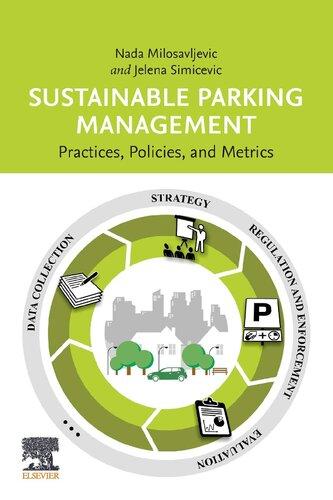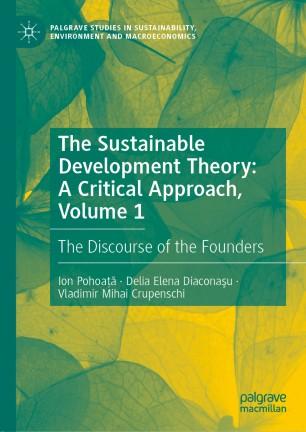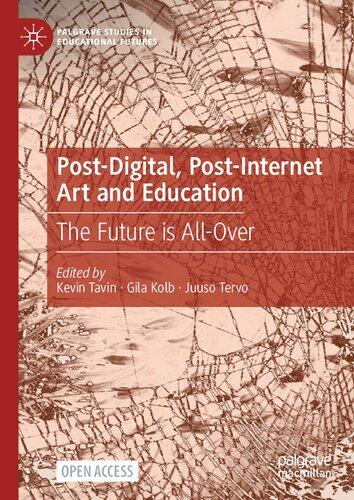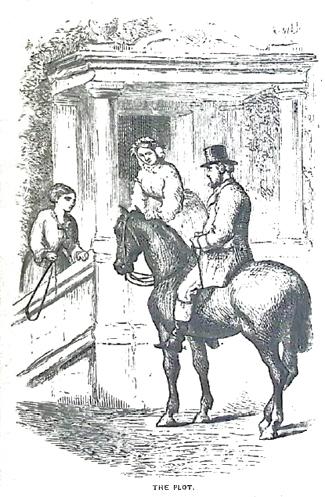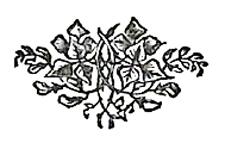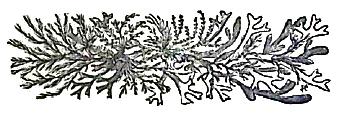Other documents randomly have different content
THE PLOT.
The Squire laughed, and rode off, all unconscious of the little plot that had just been working round him.
Between the Park and the open country flowed the river, which was supposed either to have supplied, or formed, the moat of the old castle, and which was crossed by means of a small boat attached by a chain to both banks in the Park, and by a stone bridge near the village. It was not very wide, but at the part where it wound through the Falcon Range grounds, it was deep, with steep banks, and not by any means a tempting spot for a bath.
The time was about two hours after noon, and Guy Falconer was on the Park side of the river busy at his work; while Maude held an umbrella so as to screen it from the light breeze which sent the stray leaves of autumn flying about; and Evelyn, with a little basket of fruit in her hand, had sat down at their feet to rest.
Suddenly they heard in the distance the shout of huntsmen and of the cry of dogs, while from under a hedge on a gentle eminence of the opposite meadow, sprang forth the fox, which rushed into the river at a plunge, landed not far from the three astonished friends, and disappeared. On came horses and dogs, over hedge and ditch, in wild excitement, as the coveted "brush" escaped up the river's bank; down plunged the dogs, in furious disappointment, amidst calls and shouts; in went huntsmen helter-skelter, regardless of the bugle call to a better and safer ford;—all was excitement and confusion—dogs barking, horses plunging, riders shouting, and everyone too intent upon his own safety and exploits to notice his companions.
Among the foremost came Squire Hazelwood, whose horse never acknowledged impediment of any kind in a hearty chase; but either the depth of the leap, or the water, was too sudden, and took him unawares this time, for he rolled over and over, dragging his rider head downwards, unable to extricate his feet from the stirrups. The creature
struggled to the bank, but rolled back again, and the critical condition of the Squire at once caught the attention of his terrified child; he had fallen back also, and seemed incapable of further effort.
Guy dropped his pencil and palette, and rushed to the river's brink. He saw Mr. Hazelwood's partially released form sinking deeper below the water and that not a moment must be lost.
"Fly to the village, girls," he cried; "send men to meet us lest I cannot manage it; then home both of you to Mrs. Hazelwood, that she may not be frightened."
As he spoke, he threw off his light coat and jumped into the water. It was not far to reach the spot where the horse was swimming with the current, but it was needful to approach cautiously, lest he should be disabled by a kick, as he feared the Squire had been. To release the entangled foot and hold up such a weight for any length of time was no easy task; but Guy knew every turn of the river well, and if he could but reach a shallower bend near the bridge, and where also the landing was easier, he trusted that all would yet end safely. He heard the shrieks of Evelyn receding in the distance, and knew that his calmer sister would render more effectual service in describing the needed help.
It was a remarkable coincidence that whenever the handmaiden Jane had an errand to the village, the old sign at the "Falconer's Arms" seemed to creak in its swing, as if there were something in the wind that concerned somebody on the premises; and the ostler Joe, true knight that he was, always felt bound to inquire into the matter. In consequence of which, it happened that he and Jane were walking leisurely along a quiet path between the village and
the Moat, when they were startled by the cries of Evelyn, followed by the appearance of Maude, white and breathless, and pointing to the river behind them.
Joe at once caught her attempted explanation, bade Jane run back to the village to bid any men she might see to hasten to his help, begged the young ladies to go home and hope for the best, and dashed away to the river, and the spot described by Maude. And only just in time. The horse was nowhere to be seen, but Guy, still holding his unconscious burden, had reached the shallower bank, and felt that his failing strength would do no more, when loud and cheerful rang out the encouraging voice of Joe.
"That's right, Master Guy, I've got hold; another push— there now, he's safe. Don't you drift out again, sir; hold on by that twig, and you'll be up in a minute."
To catch the twig and then the kind hand outstretched to save him, to scramble on to the grass, and lay his head in his sister's lap, was all that the exhausted boy could do, and then he lost all consciousness of what had passed, or was passing round him.
In the meantime the whole village was in consternation. Several well-ducked gentlemen had taken refuge at the "Falconer's Arms" and other houses readily opened to them, and the news of real danger of the Squire sent a crowd of ready helpers in quick response to Joe's message and Jane's appeal.
Tenderly borne in their strong arms, he was carried to the house, where Evelyn had already been preceded by the horse, whose melancholy aspect as he pattered into the stable yard had alarmed the servants, and brought them about their mistress in excitement and sympathy.
"Maude, Maude! Guy! Oh, mother! They are not come," cried Evelyn, as she missed them from the approaching group, and stood with renewed terror by her mother's side.
"Hush, my child; we shall hear. Mrs. Falconer is asking."
"All right, Miss; all right, ma'am," said Joe, soothingly. "The young lady is with her brother till we go back. You see, he saved the Squire, and then were a bit knocked up like; but he'll soon come round, never fear. And please you, my lady, I've took the liberty to send off for the doctor, and lose no time. The master breathes hard, and I reckon he's wholly stunned for a bit; but he were not half drowned, because of Master Guy, and he'll do by-and-by, my lady, so don't take on about him."
All this while they laid their portly burden on the couch, and respectfully retired, feeling more than thanked by the grateful look of the lady, though then she could say nothing.
"Now, mates, we'll fetch Master Guy," said Joe; "and please God, they'll both come round soon."
By that time Guy had recovered consciousness, and knew the loving face that bent over him in such heart-sick fear; and leaning on Joe's arm, insisted on walking home, making anxious inquiries about the condition of the Squire.
"I think the horse must have hurt him, and so prevented him from getting out of the water," said he.
"There be a wound on his head, sir," said Joe, "and that stunned him; but he be a fine strong man, and it'll take more nor this to knock the life out of him."
"And you will have been the means of saving him, our kind, good Mr. Hazelwood," said Maude. "I shall so love to
think of it, Guy."
Guy smiled, and was soon in his mother's arms, cared for, and happy; his wet garments changed, his heart uniting with hers in deep and warm thanksgiving for the help and safety vouchsafed.
"Well, mother, is he better? Does the doctor give hope?" he anxiously asked, as she came for the last time, before leaving him to sleep, with the report from Mr. Hazelwood's room.
Another gentle step accompanied hers this time, and Mrs. Hazelwood, pale and worn, indeed, but her fair face expressive of tenderest interest, bent down and pressed a fond motherly kiss upon his brow.
"He is conscious, dear Guy. The doctor says that with care and quiet, he will recover; he has asked for you. Tomorrow, please God, he will see you."
"Oh, tell him I'm all right," cried Guy, the colour rushing to his cheeks, "and I hope he will soon be the same."
The mothers smiled through their tears and left him.
Evelyn had sat in an agony of grief until she knew that her father was restored to consciousness and had spoken collectedly. Then she went to seek Maude, and hear of Guy.
"I don't think my father will ever call him 'poor lad' again," she thought within herself, with a sensation of considerable triumph.
And under the shadow of this strange interruption to the even tenor of their lives, the inhabitants of the Moat and the village went to rest at the end of that eventful day.
It was some time ere the Squire was permitted to leave his room, and in the matter of personal restraint, such a patient manifested something of the temper of a rebellious baby. He would have held perpetual levée, received everybody, and talked about everything, but for the watchful care of his body-guard, and the unanswerable arguments of his chamberlain. But at last, his term of imprisonment ceased, and he was again to assume his wonted place and duties.
"Dorothy, my dear," said he, smelling about as he descended the staircase, "I don't smell paint; has Master Guy's promised work been delayed for my convenience? Has he not begun to paint the house yet?"
"Come and see," said Mistress Hazelwood, smiling; and taking his arm, she led him across the hall.
There, in the most conspicuous position favourable for the light, was a large handsome picture of the old Moat House; the time, morning; the scene, that in which the Squire, mounted on his favourite hunter, and equipped for the chase, was chatting with Mistress Hazelwood as she stood under the porch leaning over the balustrade while Evelyn was presenting the riding whip to her father. The whole was so well delineated, the animation of the figures so gracefully described, the group and colouring so skilfully arranged, that instantly recognising the moment, and comprehending now the reasons of playful detention that morning, the Squire uttered a loud exclamation of delight, which brought all the interested actors in the plot quickly around him.
"I must have the pleasure of buying your first picture, my young friend," said he, seating himself opposite to it with infinite gratification, "and at once commission you to paint a fellow to it. The subject shall be the same steed, only crest-fallen, the same rider, only well-nigh at the end of life's chapter, and a hero to the rescue with the spirit of the brave old barons of Falcon Range."
"Dear sir," said Guy, modestly, "that scene is too painfully painted on all our minds to need any such commemoration. Something that would express our thankfulness to God for your recovery would please us all much better."
"I knew he wouldn't paint that," cried Evelyn, the tears springing to her eyes as she wound herself within her father's arm, and stood gazing with him at the picture; "it is not fair to ask him, is it, mother?"
"No, Evelyn; nor could Guy, even after long years of study, ever imagine anything that would faithfully express our gratitude to God, and to him, God's instrument, for the mercy and lovingkindness bestowed upon us that day."
"May the life so saved be turned to better account in the future, than it has been in the past," said Mr. Hazelwood, humbly. "Then it seems I must find another subject to make the pair; and in the meantime, Guy having performed his part of Mistress Hazelwood's agreement, it remains for me to fulfil mine. But, Guy," he suddenly exclaimed, merrily, "am I not something of a lunatic? If I help you to become a great painter, is it not like pulling down my house over my head, seeing that, as a little bird whispered to me, all your money is to go to the repurchase of the old Moat?"
Guy blushed painfully. Somebody had betrayed him to the Squire, and the idea now seemed to his own mind so absurd and preposterous, that he would gladly have concealed it for ever.
"Sir, I am ashamed that I had such a thought," he stammered; "I never dreamed that anyone would tell you of it."
"It was I who told," said Evelyn, penitently, "but not because I was angry with you, Guy."
"No, Guy, but because she was angry with me, I do believe," said the Squire, mischievously. "I said something disparaging about somebody, and she revenged herself by announcing my doom to lose the Moat. Was it not so, Evelyn?"
Miss Evelyn could not wholly deny it, and feeling unable to explain, rejoiced to be spared a reply, for the Squire rose, and putting his hand on Guy's shoulder, said,—
"Tell me, my boy, whose thought was it to identify the present owner with the house, by painting them together in that pleasant scene?"
"My mother's, sir," said Guy, promptly.
"Guy, that is only part of the truth; tell the whole," said the gentle voice of Mrs. Falconer.
"It was somehow this way, I believe," said Guy, reluctantly. "I was to paint the house by Mrs. Hazelwood's desire, and as I thought and thought over many things, I began to feel ashamed of coveting the old place after God has so decidedly given it to you, and I said to my mother that I should like to prove whether I could really and truly
give up the foolish fancy of ever having it back again, and be entirely willing to see you its owner and master."
"Well, my boy."
"Then my mother said I might perhaps paint out my sin and folly, in the pleasant effort to present Mrs. Hazelwood with a likeness of the master of the Moat at a happy moment before his own door. And I do assure you, sir, that in doing it, I have lost every trace of a wish to be in that place myself. Your accident helped me more than I can tell you."
"How so, Guy?"
"Why, it was when you were in the river, and I was trying to free you from the horse, and when I was in terror lest help should not come soon enough,—then the horrible wickedness of coveting your property nearly distracted me, and I prayed God to help me and to accept my resolve that if He would spare your life, I would give up the thought for ever, and desire for myself no inheritance but that which He will give me. And He did spare you, and in solemn truth I can say that I hope you and your people may keep the old Moat as long as the world lasts. As for me, a great load is gone off my mind—a nasty ugly sort of feeling of struggling after something I could not get; and if I can only work for my mother and Maude, I shall be the happiest fellow alive."
"I charge myself with that happiness my boy, if it be within human means to attain it. Then, for the rest, have we to thank your excellent mother for this victory over self and natural feeling?"
Mrs. Falconer raised her eyes to the flushed face of her son. It was a testing question; how easy to say Yes, and
seem to render the expected tribute to a mother's careful teaching.
But Guy no longer dared to doubt the source of real, practical self-conquest, and though shrinking from any hand that would probe into inner experiences, he felt constrained to honour God by an avowal of the grace that made him "more than conqueror through Him that loved him."
"My dear mother has taught the possibility by precept and example, sir; but not even she could have overcome such wrong feelings as I have had on this point. I believe it is only by God's Holy Spirit giving such faith in the Lord Jesus Christ as can raise one out of old thoughts and desires, into such new ones as He felt and taught Himself, and become those who take Him for Saviour, and Captain, and King."
"'If any man be in Christ he is a new creature; old things have passed away; behold, all things are become new,'" softly repeated Mrs. Falconer.
The Squire bowed his head, wrung Guy's hand as he had never done before, and walked away with Mrs. Hazelwood into the lady's sheltered garden.
On the following Sunday, he appeared once more with his family in the old parish church, and united with them in "public thanks to Almighty God for His late mercies vouchsafed in preservation from sudden death, and restoration to health of mind and body."
"Dorothy, my dear," said the Squire, soon afterwards, "we must do something more than speak. We must try to prove in deed what we have said in word. Have you any
thought on this matter? You mentioned something about a thank-offering, I think."
"We have reaped a rich reward for bearing in mind the fatherless and the widow, Roger," said Mistress Hazelwood, with tears gathering in the loving eyes that were raised to his.
"True, my wife. And you mean that we should continue to care for them, if they will allow us; that is settled: Guy's future is my charge, and whatever he and his friends wish shall, God willing, be done, and I know I may leave his good mother in your hands. Maude will of course share in every way with our Evelyn. But this seems too much bound up with our own comfort and satisfaction, like the soup and petticoats and blankets that we could not be contented without giving to our poor sick or old neighbours in the winter,—just a natural, right thing, you know. Is there not something that we could do outside of duty, as it were? Not that I could be anything but an 'unprofitable servant,' after all; but you know what I mean, Dolly, I'm sure."
Yes, Dolly knew very well: he wanted to do something for the glory of God simply and solely; something that would not be in itself a great gratification to himself personally,—some "threshing-floor" that might cost a price, and be thus an "offering."
"I have a thought, Roger, but it would be rather an expensive one; not too much for the occasion, but perhaps exceed your means."
"Out with it, Dolly; you are not wont to be extravagant." said he, smiling.
"The Church wants a little repair, Roger; perhaps that should come first."
"The Church! Yes, I have been talking with Mr. Herbert about it, and it must be made safe and comfortable, but this mere duty still. You don't want me to ornament and decorate it to show piety, do you, Dolly?"
"No, indeed, nothing of that kind, Roger. I would have it thoroughly respectable as a place where Christian people meet to worship God should be, when means permit, but nothing that could divide a thought with Him, or attract attention from Him who has promised to be in the midst of them that meet together in His name, to bless them."
"Right, my dear. No blowing of the wind in the direction of the pomps and vanities that once disgraced our churches. Once cleansed, let us keep so. What, then, is this expensive thought of yours?"
"You know the village of Pine-wood End, and two miles beyond it, of Brook End?"
"Yes, I do; it was there that the plaguy fox turned tail and led us our memorable run, that day."
"Well, dear husband, there is no place of worship nor school-house in either of those villages, and the people must walk four and five miles to the Falcon Range on Sundays or stay at home, except when Mr. Herbert is able to meet them in Farmer Bankes' kitchen, which he is glad to lend, but which is not large enough for a tithe of the people who like to attend. Mrs. Falconer and Maude visit the cottages every week, but they need closer and more regular instruction among the children. There are also some brickfields near, and a very rough ignorant set of work-people need looking after. Now, Roger, if you could build them a nice large, airy room for worship on Sundays, and school on week-days, and provide some true servant of Christ to work
there, preaching the Gospel plainly and lovingly, and presiding over the schools with a like-minded teacher, I do think it might be a thank-offering to God which He could accept and bless."
"This is a good thought, Dorothy. We must consider it well, count the cost, and do our best. And if it should involve a little self-denial in some ways—"
"So much the better for us, Roger," said Dorothy, quickly, "it will then be a perpetual thank-offering, not an isolated act and done with for ever. What a sweet remembrance for us every week, dear husband, if we are giving up something to have our Lord's Truth taught, and souls saved and families blessed."
"Thou might'st have been in the river with Guy, t'other day, Dorothy!" said the Squire, admiringly.
"Perhaps the tender pity of my God that day has drawn me closer to the Water of Life, and every draught of that stream stimulates the desire to put the same cup into every hand."
And is it not so?
The Squire, too, was within the charmed circle, and the expansive principle of Christian love was warming and winning its way amongst the generous impulses of natural feeling, consecrating and leading them to the service and glory of a new Master, whose claims were being affectionately recognized with a pleasure and peace which only "he that dwelleth in love" can know.
"But, my dear Dorothy," said the Squire, thoughtfully, after ways and means had been discussed, "we can build
and prepare, but you know we cannot make the minister: where shall we find the right man?"
"Dear husband, let us not be faithless, but believing. God has made the minister, and will produce him when he is required."
"You are a witch, Dolly, to dare turn prophetess in this fashion; but I have a notion you are right, so we will do our part, and wait for the rest."
And, blended with the daily petitions at family prayer, thenceforth went up one for the success and blessing of the work, and the provision of a wise godly minister of Christ's gospel to shepherd the flock at Pine-wood End, and take charge of the little chapel-of-ease to the Parish Church of Falcon Range.
Mr. Spadeley had misgivings as to whether it would be real worship in a building without aged pillars, and pointed arches, and many-coloured glass, and especially without the mouldering dust of the hamlet's "rude forefathers" begetting solemn thoughts of death and decay; but as all great occasions would rally the people round the old mother-church, and he himself was undisputed monarch of the parish graveyard, it did not seem that any great diminution of his importance would accrue from a small unpretending neighbour like the little chapel at Pine-wood End.
So Mr. Spadeley condescendingly took the affair under his patronage, declared himself as ready as ever to bury the whole parish on the same terms as before, and exhorting all who should be favoured with his services to select their epitaphs in proper time, sagaciously opining that the new educational advantages to be afforded at Pine-wood End
would greatly facilitate their choice on a subject so important to posterity.
As the new buildings rose before the delighted eyes of the village seniors, the juvenile population began to be painfully aware of some conspiracy against their liberties, and to indicate resolutions of non-submission to any schoolmaster or schoolmistress who might be enthroned behind any formidable desk on earth.
Of the little old mistress of the village dame-school in her rocking-chair by the fire-side, no one had ever professed to stand in awe; her rods soon dwindled to a single twig whenever she set up one, the hard words in her "Reading-made-easy" got mysteriously blotted, or punched out, or the books were strangely missing.
And she, poor old lady, declared her firm belief that "the world was near its end, for never rose the sun upon such a race of little villains since the days before the flood." For her part, "how it came to pass that such critters were allowed to live, was beyond her understanding altogether," and if she had been arbitress of human destiny, they must have gone the way of water rats, field mice, and black beetles before the just indignation of their superiors, resolved to be rid of such like pests. Mentally she daily transported a room full to Botany Bay, having some dim idea of that interesting locality as a sort of reservoir of rubbish whereby this planet was relieved of objectionable populations.
But in the new schools, the advent of some very different kind of personage was apprehended, and more than once, stones had been projected through the apertures where windows were to be, in anticipation of the treatment that any head might suffer, bold enough to think of ruling the pinafore spirits of Pine-wood End.
Rumours got afloat, however, that the ladies of Falcon Range had a teacher under training for this post of danger, and the creaking old sign of "The Falconer's Arms" warned trustworthy Joe that he might be found to have some interest in the matter, and sent him on an errand of remonstrance to the clerk and sexton of the parish, whose business it was to see to the well-being and safety of the house of Spadeley.
CHAPTER X.
SCHOOLS OF THOUGHT.
THERE could be no doubt that Guy Falconer possessed genius for painting, and that an ardent love of what men call "Nature" inspired its direction, and ruled his taste. His efforts indicated a peculiar style of his own, and his friends were advised to leave it unbiased and unrestricted in its developments, until it should appear into what school of study, for detail and experience, it might most suitably be directed.
With the free air of the country around him, his health improved, his form grew strong and manly, and his character began to manifest a vigour and decision which rendered his associations of the highest importance.
His mother and Mr. Herbert had sought to lay a good foundation of Christian principles, and if Guy should go wrong, it would never be from ignorance of right. But they knew that only the Holy Spirit of God could implant love of the right, and guide to useful issues the quick perceptions and firm will which they had prayerfully striven to rescue from idle waste and natural selfishness.
Without cramping the gaiety of youth, his studies had been solid and strengthening; what he knew at all, he knew well, and if he ventured an opinion, it came from no shallow surface, but from a mine of thought in which it had been carefully shaped, though more for soundness than for ornament, and sometimes, perhaps, was also more sincere than polite.
Mr. Herbert claimed a stated portion of his time for real hard work in the study, in preparation for a college course which Mr. Hazelwood particularly desired him to pass
through, and then Guy was free to enjoy his companionship with the field of vision round him.
And then the morning mist, and evening sunset, the haze on distant hills, the clouds and sky in storm and calm, the moonbeam on the river, the foliage of park and wood, deer and cattle, ivied tower and village cot, by turns caught the artist's eye, and supplied studies for his pencil.
Thanks to the influences which had hitherto shielded his life, Guy had learned much of the Creator from His own written Record, and manifestation in His Son Jesus Christ, before doing homage to "His eternal power and Godhead" in "the things that are made;" and when, feeling the meagerness of human language to express his wondering appreciation, the sweet words of Divine inspiration came suitably to his aid, and the Psalmist of Israel had tuned the lyre to which believing hearts through successive ages should chant their songs of praise.
And while, in self-abasing contrast with the Divine Majesty, he exclaimed with David, "'Lord, what is man that Thou are mindful of him?" * He was able to advance with Paul into the solution of the mystery, and by faith to "see Jesus, who was made a little lower than the angels," ‡ a suffering, sorrowing Man, "that He, by the grace of God, should taste death for every man," and in the glorious consummation, having subdued all enemies, and abolished all consequences of sin from the once perfect creation, will reinstate the lawful King over His restored inheritance, and then again shall "His name be excellent in all the earth," and all things animate and inanimate respond to their original intent, and "everything that hath existence shall praise the Lord."
* Psa. viii. ‡ Heb. ii.
Guy came to his wide field of study groping after no "unknown God," but from the presence of "the Truth" alone commissioned to reveal Him. There is no risk of mistake when the spirit of man as a learner listens to the Spirit of God as the teacher, and "looking unto Jesus" apprehends the mighty import of the Divine proclamation, "This is My beloved Son, in whom I am well pleased."
Whatever his chosen sphere of duty, the young believer is thus fore-armed, and Christ has a faithful soldier in the battle field.
Intent on his congenial occupation, Guy was one day sketching, beneath a group of trees that might have been planted specially as an artist's post of observation, the picturesque village of Pine-wood End, where the new school-house was becoming prominent against a background of foliage rising abruptly on a steep hill-side.
An approaching footstep, a little imitation cough failing to attract his notice, a voice tried effect upon his ear, and turning round he saw a gentlemanly-looking young man, who had been pointed out a short time before as the new tutor to the son of Sir Ryland N— of N— Hall, a neighbouring landowner.
"I beg your pardon," said he, gaily, "but may I not presume to admire your work?"
"No, sir," said Guy, smiling; "unless you wish me to think lightly of your judgment. But you may expend as much admiration as you please on the scene I am trying to represent. You will not find many so gracefully combining variety and interest."
"Ah! Now you remind me of a landsman trying to beguile an old sailor," said the young man, laughing. "You have not travelled, or you would scarcely notice a spot like this."
"Then I should not care to travel," said Guy. "But it need not be so. We may travel to admire and wonder, without losing preference for the land where we live and love."
"Ah, I see; at present your eyes are in the heart rather than the head, and I dare say that is very pleasant for the time. But what if some savage from the desert or jungle, some oily Greenlander from the icebergs, or thick-headed Serf from Siberian steppes were to meet you with this preference theory?"
"I should honour the sentiment, whatever I might think of his taste," returned Guy; "but I do not allow that preference indicates want of appreciation."
"Well, well, I can only confess for myself a delight in the beautiful and good wherever I find it," replied the stranger, with an air of self-satisfaction that rather provoked his hearer.
"An equal amount of delight?" he inquired.
"Certainly, according to the nature of the subject. Why not?"
"Then," said Guy, laughing, "you deserve to go down—
"'To the vile dust from whence you sprung.
Unwept, unhonoured, and unsung.'"
"Come now, that is a challenge," said the stranger, seating himself at the foot of the tree, "and I am sure you will not deny me the right to defend myself. I should like to convince you that this idea is altogether too narrow and mean for anything so great and wide as man's capacities of intellect and affection. We are, as it were, off-shoots of Deity; we are to emulate our origin, and our sympathies ought to be as generous and universal. Benevolence and beauty being our ideal of God, we worship Him in them wherever they exist, without regard to place or time, or other associations."
"There must be other associations in my ideal of God," said Guy, gravely. "A being all beauty and benevolence might lack wisdom, power, truth, justice, and we need not forget that this very want, with inability to comprehend the union of all such attributes in one Supreme, led to the multiplication of deities in heathen worship."
"Well, you will grant at any rate that the Supreme Being whom we worship is a fount of benevolence and beauty, results of which are spread out everywhere, and everywhere demanding equal homage and admiration?"
"In what way rendered?" asked Guy, after a pause.
"Oh, in our enjoyment and happiness, our appreciative instincts, of course. What gives pleasure and makes happiness for His creatures must derive its own reward in the bestowal."
"That is to say that my satisfaction in good health, in the enjoyment of plenty, in a beautiful landscape, is God's
reward for creating such agreeable things, and that He requires from me no further acknowledgment?—I am worshipping acceptably in receiving and enjoying?"
"It is not just the way I would put it," said the young tutor; "but let it stand if you like."
"It is the plain English of your statement," said Guy; "and suppose for the moment it is granted. It is only one side of things. Take the other side, in things great or small. A frightful storm that wrecks ships of all sizes on our shores, and makes hundreds of widows and orphans in a night; an earthquake that swallows up the good and bad alike; the sickness that wastes, the poverty that crushes, the deformity that revolts, the tears of bitterness that fall on many an innocent face, what then of your fanciful ideal of God? How do His attributes of benevolence and beauty stand in such a contrast? Who enjoys, who has satisfaction in such scenes? Who renders worship then to Him who is so beautiful and good?"
"I cannot, of course, enter at once into proofs from natural philosophy that would meet your argument so far as the laws of nature are concerned, but doubtless it can be met. The moral objections are more difficult to understand and deal with, but I think reason suggests that out of such seeming ills some hidden good evolves, which, if we knew it, would vindicate benevolence and goodness to our satisfaction."
"You have come to my armoury for that weapon to parry my thrust," said Guy; "you take that view by faith, and you know it is written in the Book of Truth; your mere reason could not have discovered it, and I claim the credit where it is due."
"I cannot help it if our different schools of thought bring us to the same conclusion," said the stranger, affecting to laugh. "Your Book of Truth ought not to contradict my reason."
"It explains and reconciles what mere reason cannot reach," said Guy; "and when pressed by facts, your ideal a Deity snatches a ray from the source of Light and Truth, which only makes your darkness more visible; but error is not scrupulous."
"Upon my word, I was not prepared for this encounter," said the stranger, gaily; "I usually let people think as they please, for it is not worth while to disturb them, and I always give them credit for intending to think and act for the best."
"Then you have no standard: you let everyone invent his own God, and admit that all may be equally true, or, pardon me for adding, care not if all are equally false?"
"Really I prefer to use more courteous terms to myself, and judge that I exercise Christian charity," said the tutor.
"Not Christian charity, sir, excuse me," said Guy. "True Christian charity declares God's view of man and his condition, and the terms on which they can be reconciled. Sin has made all the disturbance, and caused all the seeming contradictions, and 'the wages of sin is death; but the gift of God is eternal life through Jesus Christ our Lord.' 'He that is our God is the God of salvation,' and that He could not be, if judgment and justice, mercy and truth were not the attributes of His character, and the essence of His rule. Benevolence might pity the fallen, and beauty lament over ruin, but it needed mercy and truth to redeem, while wisdom planned, and love fulfilled the heavenly scheme
which proved that God is also just, while justifying the repentant sinner. Pray do not think me presumptuous for holding the light to your straying steps. Take it for your own, and they will become safe and steady."
"You seem so much in earnest, young sir, that I will not charge you with presumption, though methinks more years have passed over my head than over yours, and my experiences and advantages have been greater."
"Years should give wisdom," said Guy, "and I should have been happy to learn from you, had you spoken 'as one having authority;' but if giants in human learning come and assail a boy-believer in the God of the Bible, they must expect a pebble from his sling whether it hits or not, and for that I cannot apologize."
"The people I meet with seem to find it too much trouble to think, and it is rather refreshing to find someone with a mind of his own, so I ask no apology, and shall be happy to become better acquainted," said the stranger, offering his card. "Besides, I think you can give me some information about the school-house yonder. I am told that religious services are to be conducted there, there, for which some minister will be required. My position here leaves a good deal of time on my hands, and if I make up my mind to take orders, do you think it is open to me to offer myself for the post?"
"If I am not presumptuous again," said Guy, unable to conceal his surprise, "I cannot but wonder at the idea of accepting orders to do what you disapprove of doing. Mr. and Mrs. Hazelwood intend that 'the gospel of the grace of God' shall be proclaimed there, and your ideal of God and human need flatly contradicts it."









